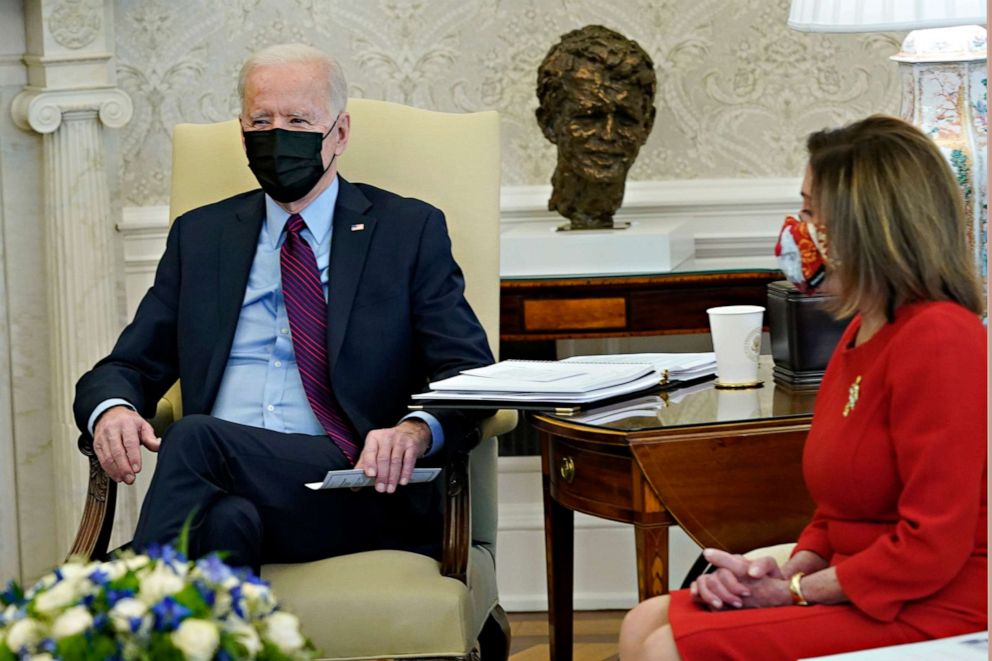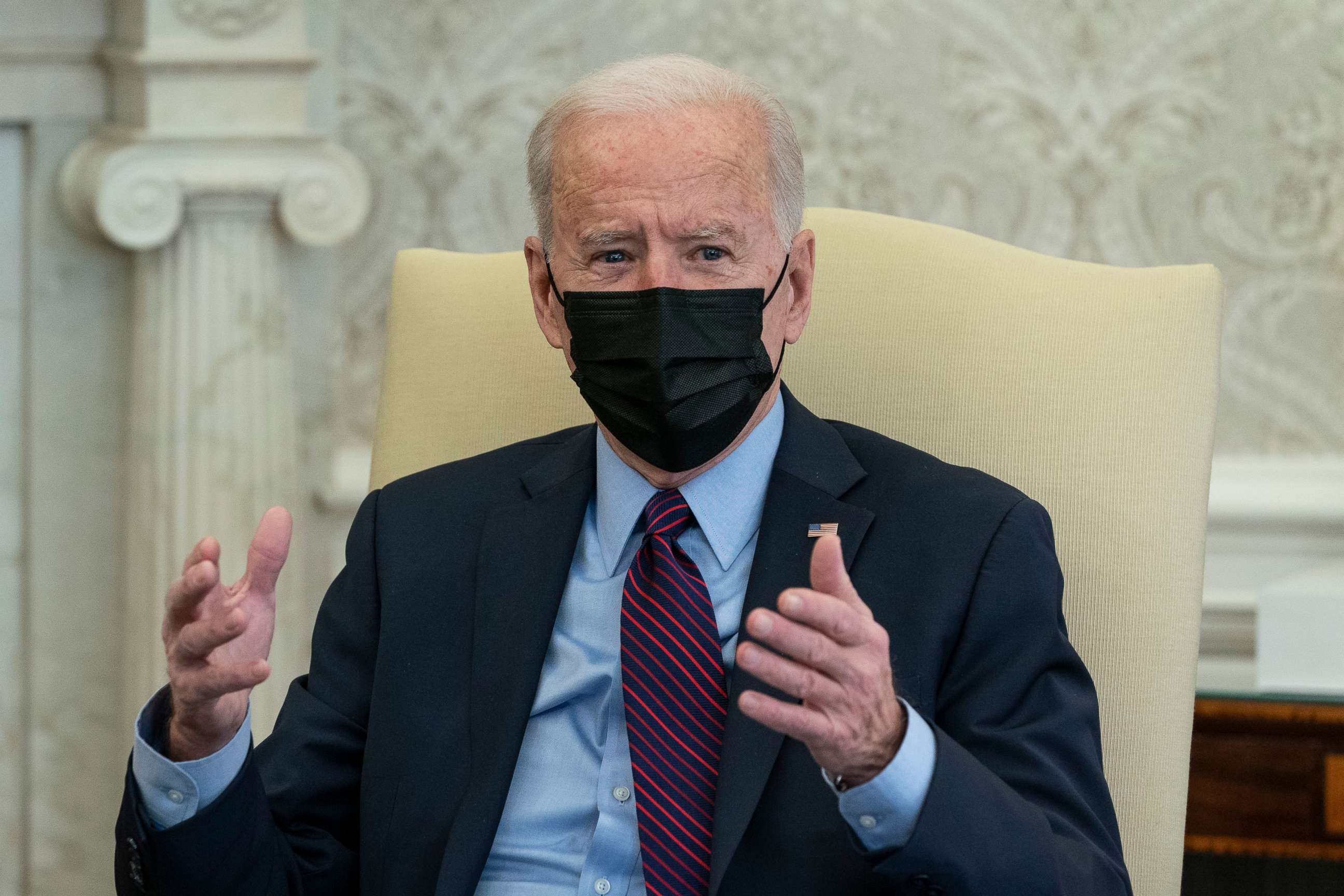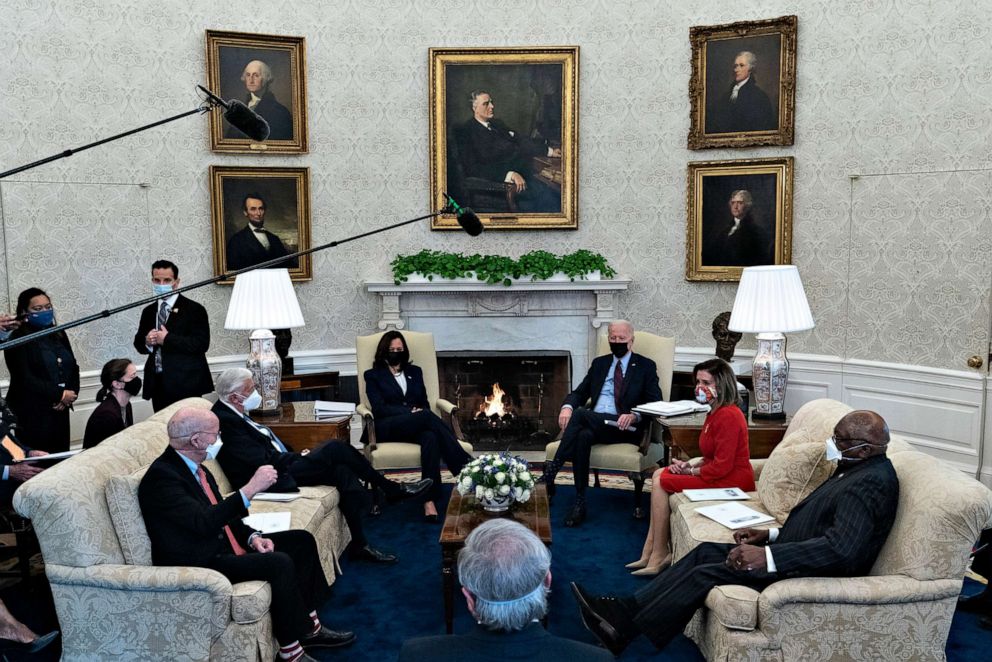Biden: 'We can't do too much' on COVID-19 relief, GOP 'not willing to go' far enough
The president said he wanted to get relief passed quickly.
President Joe Biden said Friday he did not want to provide "too little" relief for the coronavirus pandemic and that Republicans are "just not willing to go as far as I think we have to go."
Biden said Friday that he wanted to pass a $1.9 trillion COVID-19 legislative proposal "with the support of Republicans" -- but that so far, they had not met the urgency and need of the moment.
"I've met with Republicans -- they’re some really fine people, wanting to get something done," he said during remarks at the White House. "But they're just not willing to go as far as I think we have to go."
The president said that it was becoming clear he would likely have to proceed without Republican support.
"If I have to choose between getting help right now to Americans who are hurting so badly and getting bogged down in a lengthy negotiation or compromising on a bill that's up to the crisis, that's an easy choice," he said. "I'm going to help the American people who are hurting now."
Biden had said earlier in the day that his perspective was shaped by lessons he learned that the Obama administration's approach to the 2008 recession did not go far enough.
In an Oval Office meeting with House Democrats on Friday, Biden recounted how as vice president, then-President Barack Obama had tasked him with pushing through legislation on Capitol Hill to address the recession.
"It was hard as hell to get the votes for it to begin with, and then it was hard as hell to get even the number we got," Biden said at the start of the gathering. "But one thing we learned is, you know, we can't do too much here; we can do too little. We can do too little and sputter."

The president's comments echoed those of Senate Majority Leader Chuck Schumer, who has insisted Democrats cannot repeat what he views as the mistakes of 2009: paring down the recession recovery act and scaling back the Affordable Care Act during negotiations with Republicans, only to see the GOP not support the final bills.
Biden told House Democrats in his Friday meeting with them that he appreciated "the urgency with which you're moving" and that they had given Americans "a lot of hope."
"This is about people’s lives," he said. "This is not just about numbers; this is about people’s lives. People are -- I don’t have to tell any of you, they're really hurting."

Biden has said he would like bipartisan congressional support for his $1.9 trillion COVID-19 relief proposal, but Republicans have largely balked at the high price tag and several of the plan's components.
While Biden hosted moderate GOP members at the White House earlier this week to discuss their alternative proposal -- which was about a third of the size as his -- he and the White House have indicated they are largely sticking with their original plan.
"What Republicans have proposed is either to do nothing or not enough," the president said during his Friday remarks. "All of a sudden, many of them have rediscovered fiscal restraint and the concern for the deficits. But don't kid yourself. This approach will come with a cost. More pain for more people for longer than it has to be."
The White House has indicated some potential areas of compromise, though, such as a willingness to target direct payments and a recognition that a proposal to include a federal $15 minimum wage requirement might not make it into the final version.

But at the same time, the president has supported a parallel track to push his legislation forward that would not require the regular 60 votes -- including 10 Republicans -- in the Senate. That process, known as budget "reconciliation," would need a simple majority in the Democratic-controlled Senate.
Early Friday, the Senate approved a measure that would let Democrats pursue that route; Vice President Kamala Harris cast the tie-breaking vote, her first in her current role.
Biden said during his Friday remarks that he was "so grateful to the House and the Senate for moving so fast."
ABC News' Sarah Kolinovsky and Karen Travers contributed reporting.




